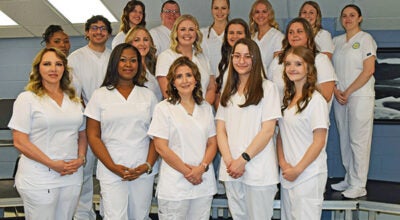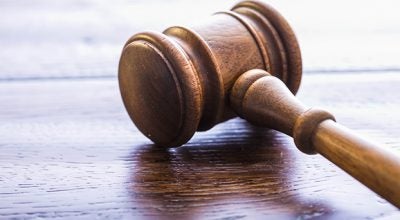Niles High School students write to congressman
Published 8:44 am Friday, February 3, 2017
Niles High School earth science students have called upon U.S. Rep. Fred Upton to take action to help improve the planet for future generations.
In a weeklong research project in December, students were tasked with using only reputable research from peer-reviewed journals to gain an educated stance on climate change.
Math and science teacher Tim Knoester, who assigned students the project, said he did not want to tell students what to believe but to teach them critical thinking skills.
“Instead of me trying to teach a controversial subject, I would allow students to form their own opinions and allow them to get practice researching and defending an argument,” Knoester said.
Students were asked to evaluate research articles that propose climate change as a natural occurrence and study the opposing argument that humans impact the climate.
Based on this research, students were asked to contact Upton with their findings and discuss which factor they believe is causing climate change. They then advocated for action depending on their stance.
Knoester said the project fit in well with the theme for the semester, which is teaching students about ecological systems and the impact one factor can have on the entire life cycle.
When junior Hali Burns was presented with the assignment, she said she originally thought climate change was a product of an ever-evolving environment and that humans did not play a role.
When Burns learned about greenhouse gas effects, she said she started to consider humans’ impact on the planet.
In her letter to Upton, Burns asked for him to do something to begin minimizing the amount of greenhouse gases that are released.
“Yes, natural resources do cause climate change, but not as much [or as bad] as humans do,” Burns said.
Since researching the topic, Burns said she has been more cognizant about littering.
Fellow junior Camille Bryant agreed with Burns that small lifestyle changes could contribute towards a bigger picture.
“You cannot stop anything that is naturally occurring,” Bryant said. “But you can put a stop to [what] humans [are doing] and make a change.”
Senior Austin Curran said before the project, he did not really pay attention to the topic. After examining the research and considering whether climate change was natural or man-made, Curran decided that human impact does play a role. He wrote in his letter that humans will be a deciding factor in the future of the planet’s health.
“If we want change, we have to be that change,” ,” Curran said.
Knoester will be sending the letters to Upton this week and is hoping for a response, he said.






